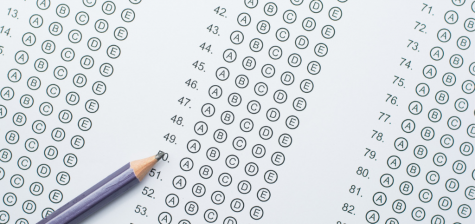Standardized Testing: Friend or Foe?
A standardized test is any form of test that requires all test takers to answer a selection of questions in the same way and is scored in a “standard” or consistent manner. Standardized testing in education systems has raised ceaseless questions for decades. What are the roots of this nationwide controversy? How do teachers and administrators view standardized tests? By gaining different perspectives from various sources, it is possible to resolve some disagreement and to learn about how standardized tests affect students, teachers, and the college admissions process.

According to Dr. Kathy Scheid, Director of Curriculum, Instruction and Assessment of the Pennridge School District, students who attend Pennridge are required to take a variety of PSSA and Keystone standardized tests in order to provide feedback to the district about the quality of the school system. Students cannot opt out unless there is a religious conflict. As well as being a key factor in the college admissions process, standardized tests are paramount to school districts across the country, like Pennridge.
One of the most prevalent arguments against testing is that questions favor people with “test-taking skills” that are not essential to career success. Pennridge High School psychology teacher Mrs. Stephanie Nash wants her students to “use what they learn in class in real life careers and situations.” Bob Schaeffer, public education director of the National Center for Fair & Open Testing, said that “[tests] advantage students with strong test-taking skills, not necessarily those with other talents that may be more valuable in the classroom or in life.” If there is an ongoing dispute regarding testing, why is it still a part of student education? Pro-test debaters insist that nationwide testing provides a common scale for all students to be compared upon. GPA scales vary across schools and don’t provide a common ground for students to be assessed on.
In high school education, the Scholastic Assessment Test (SAT) is notoriously used to measure the intelligence of a student, particularly in the college admissions process. The guidelines state that the test is designed to focus on the skills you need to succeed in college. However, over 800 colleges and universities in the United States have adopted the test-optional policy based on research on standardized tests. A study at the University of Washington at Bothell revealed that adopting the test-optional policy lead to no significant change in GPAs and graduation rates. Pennridge High School guidance counselor Mrs. Shannon O’Sullivan emphasized that if she worked in college admissions, “[she] would look at high school transcripts, course lists, and extracurricular activities over standardized test scores.” Mrs. O’Sullivan and Mrs. Nash both stressed that GPAs are more sufficient in revealing a student’s character and work ethic.
Because standardized tests provides guidelines for curriculums and acts as a benchmark for school systems, they are essential to education systems. Pennridge student Bryn Fitchett believes “those who are more intelligent receive higher scores” and that tests are a good tool in assessing students. School systems and universities today are taking into consideration to negatives associated with standardized testing in order to improve the quality of learning and education.